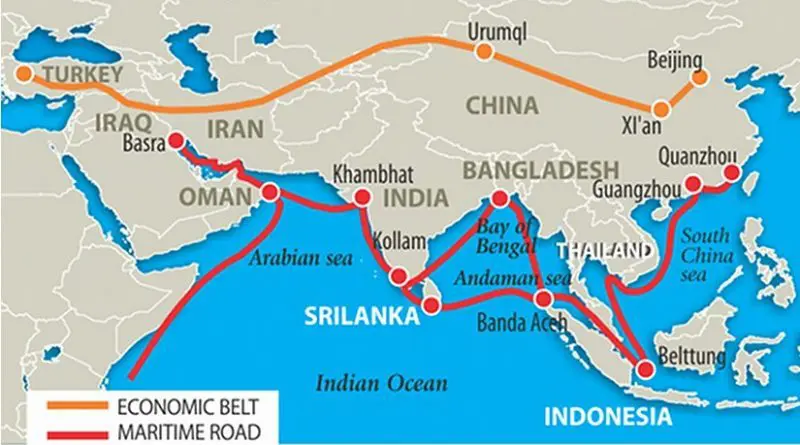As Belt And Road 2.0 Gathers Momentum, China Aims To Avoid ‘Debt Traps’
China is trying to avoid “debt traps” for the countries that signed up for its Belt and Road initiative, a senior Chinese official said at the World Economic Forum on the Middle East and North Africa. The remarks came on the back of criticism of the Belt and Road initiative (BRI) by some in the US and Europe, and ahead of the second Belt and Road forum, hosted by Chinese President Xi Jinping later this month in Beijing.
“China is trying to find mechanisms to avoid the ‘debt trap’,” said Li Chengwen, Ambassador for China-Arab States Cooperation Forum Affairs, Ministry of Foreign Affairs of the People’s Republic of China. He added that no country to date has complained of falling in the “trap” of unsustainable Chinese loans. “The Belt and Road initiative aims to increase the economic prosperity of a country. It does not aim at expanding the political and geographical authority of China in the world.”
The initiative, started by President Xi in 2013, has more than 100 partner countries from Asia, Africa and Latin America, but also including Russia, Portugal and Greece. It offers loans from China for infrastructure projects such as railroads, ports and highways, and aims to build a network of economic corridors connecting China with the rest of the world.
Li’s remarks came in response to a question by John Defterios, Editor of Emerging Markets, and Anchor of CNN Business, who mentioned the issue of the Chinese-financed Kenyan Mombasa port and railroad, which has run into financial problems. But it was raised also by Ryan Hass, Foreign Policy Fellow at the Brookings Institution. With BRI, “one of things we’ve seen is all the risks are put on the recipient, not the originator of the loan,” he said. “A degree of restraint by the Chinese would be helpful.”
Other participants disagreed with the criticism that BRI is a “loan to own” initiative. “If you keep your interest first, you will not find China an unfair partner,” said Shandana Gulzar Khan, Deputy Minister and Parliamentary Secretary, Ministry of Commerce of Pakistan. “But it depends on how well you do your homework.” In Pakistan, she noted, the China-Pakistan Economic Corridor created tens of thousands of jobs and has revived an entire region.
He Wenping, Professor and Director, Institute of West-Asian and African Studies, Chinese Academy of Social Sciences (CASS), agreed with that assessment. “The biggest worry on ‘death-trap diplomacy’ should come from China’s side. It is tax payers’ money.” The upcoming Belt and Road forum in Beijing later this month could be an opportunity to kickstart a “second phase” of the initiative, Hu said. “It will be open more to the outside world,” for example by having foreigners on the BRI advisory bodies. “China is not waving the ‘China First’ flag,” she said.
The World Economic Forum on the Middle East and North Africa is being held at the Dead Sea in Jordan on 6-7 April in partnership with the King Abdullah II Fund for Development (KAFD). The meeting marks the 10th hosted by Jordan since it was first convened at the Dead Sea in 2003. It is bringing together more than 1,000 government, business and civil society leaders from over 50 countries.

